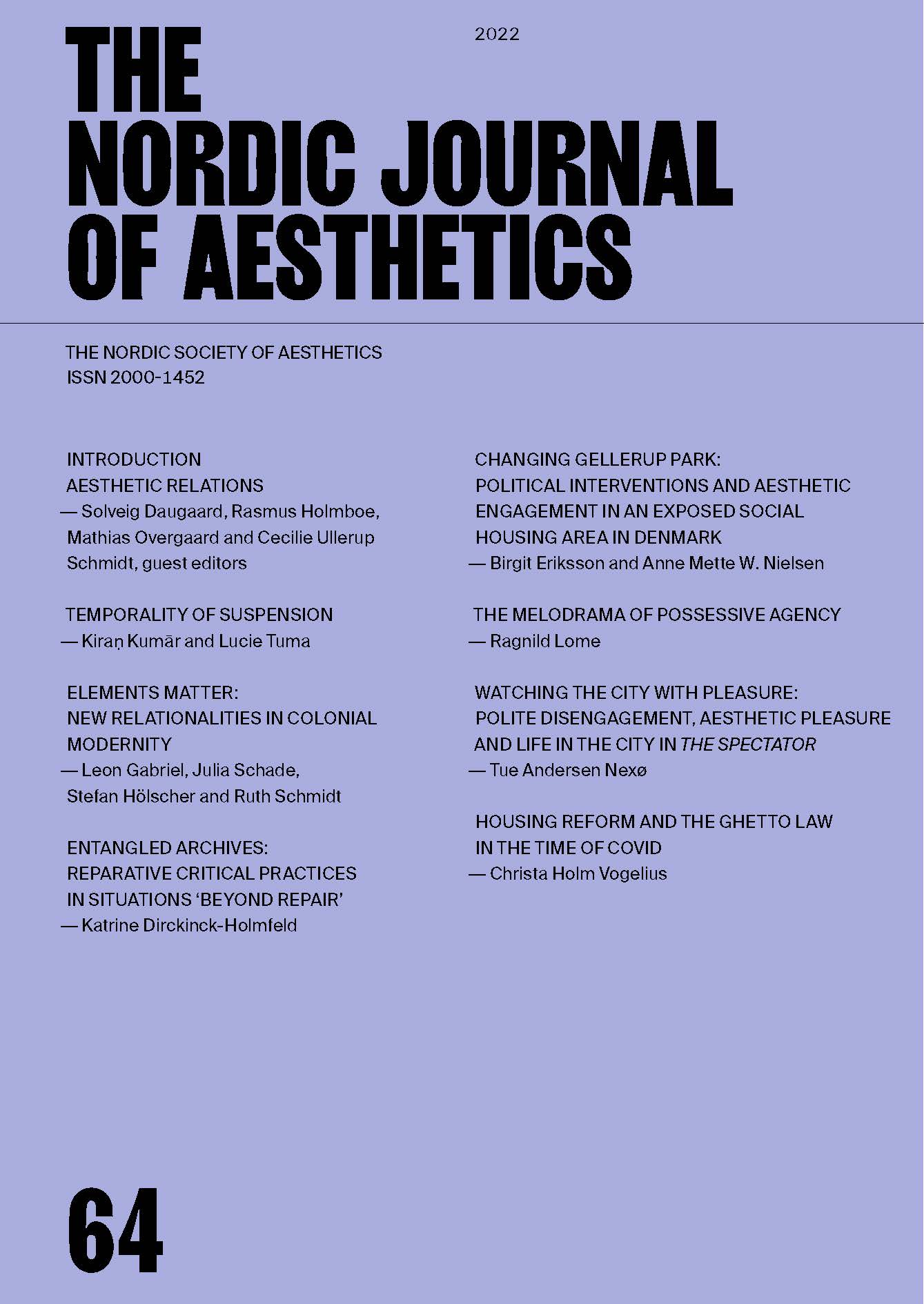Entangled Archives
Reparative Critical Practices in Situations "Beyond Repair"
DOI:
https://doi.org/10.7146/nja.v31i64.134220Keywords:
Colonial archives, Reparative practices, Affect, Visual art, Art educationAbstract
In this essay, I explore the founding violence that the Royal Danish Academy of Fine Arts can be said to rest on. I propose to view the building of Charlottenborg Castle which houses the Royal Danish Academy of Fine Arts as a “material witness” (Schuppli) to colonial history. I suggest that the building forms part of a material “cultural archive” (Wekker) of colonialism that can be seen as an entangled archive, that is simultaneously an entanglement of overlapping histories, and an instrument that disentangled and disconnected communities affected by colonialism by producing a radical cut between the colonized communities and their creative expression. By juxtaposing paintings from the colonial era with contemporary art works the essay explores the following questions: What does it mean to conduct art education on such contested grounds? What are the ramifications of colonial-modernity within the art institutions today? And how does it continue (indirectly or directly) to distribute and determine what counts as a work of art and who counts as a subject?
Downloads
Published
How to Cite
Issue
Section
License
Copyright (c) 2022 Katrine Dirckinck-Holmfeld

This work is licensed under a Creative Commons Attribution 4.0 International License.
Authors who publish with this journal agree to the following terms:
- Authors retain copyright and grant the journal right of first publication with the work simultaneously licensed under a Creative Commons Attribution License that allows others to share the work with an acknowledgement of the work's authorship and initial publication in this journal.
- Authors are able to enter into separate, additional contractual arrangements for the non-exclusive distribution of the journal's published version of the work (e.g., post it to an institutional repository or publish it in a book), with an acknowledgement of its initial publication in this journal.
- Authors are permitted and encouraged to post their work online (e.g., in institutional repositories or on their website) prior to and during the submission process, as it can lead to productive exchanges, as well as earlier and greater citation of published work (See The Effect of Open Access).




